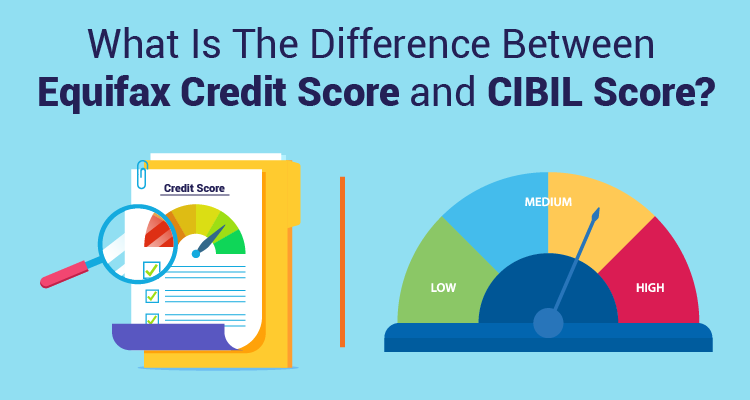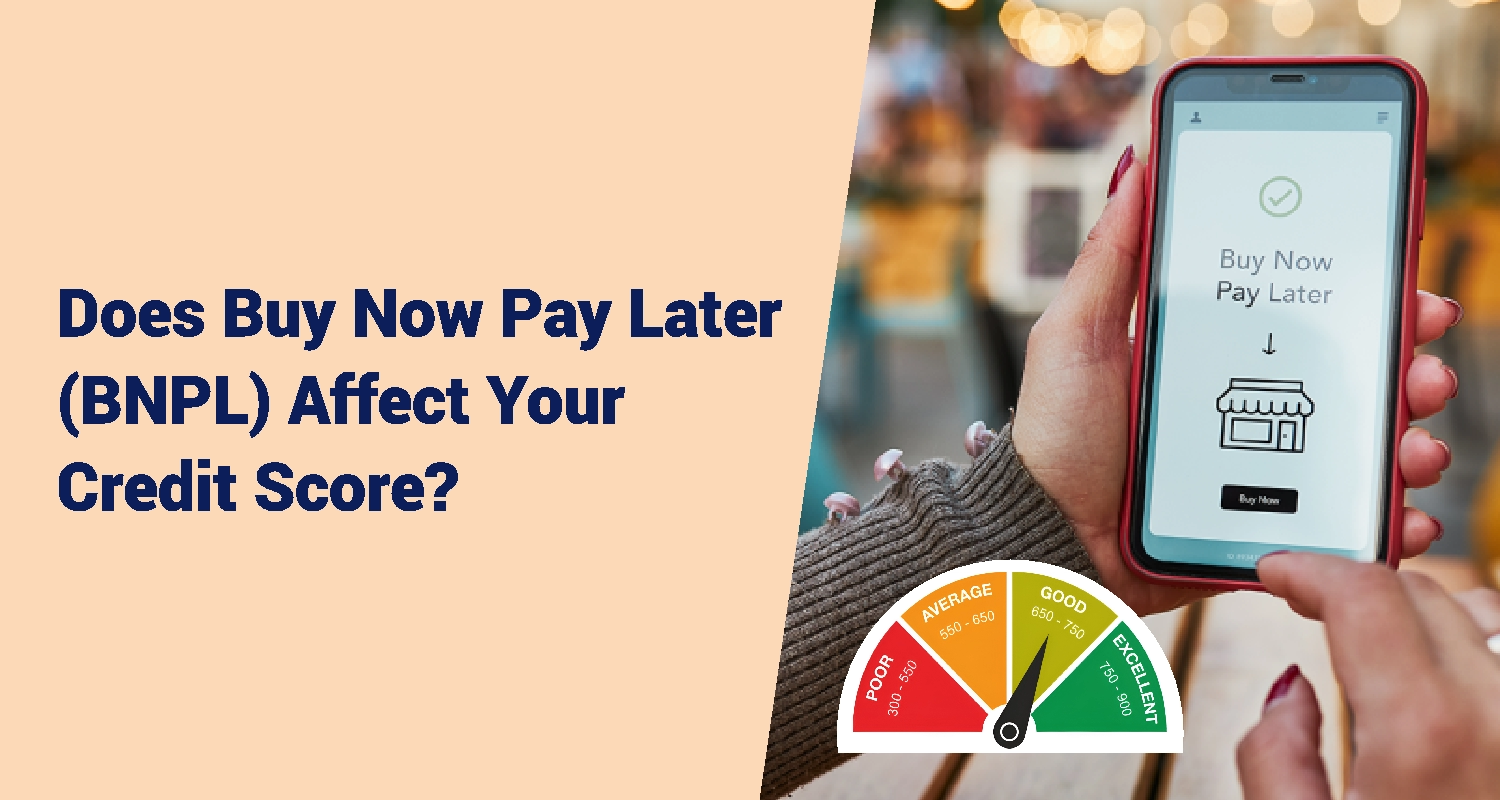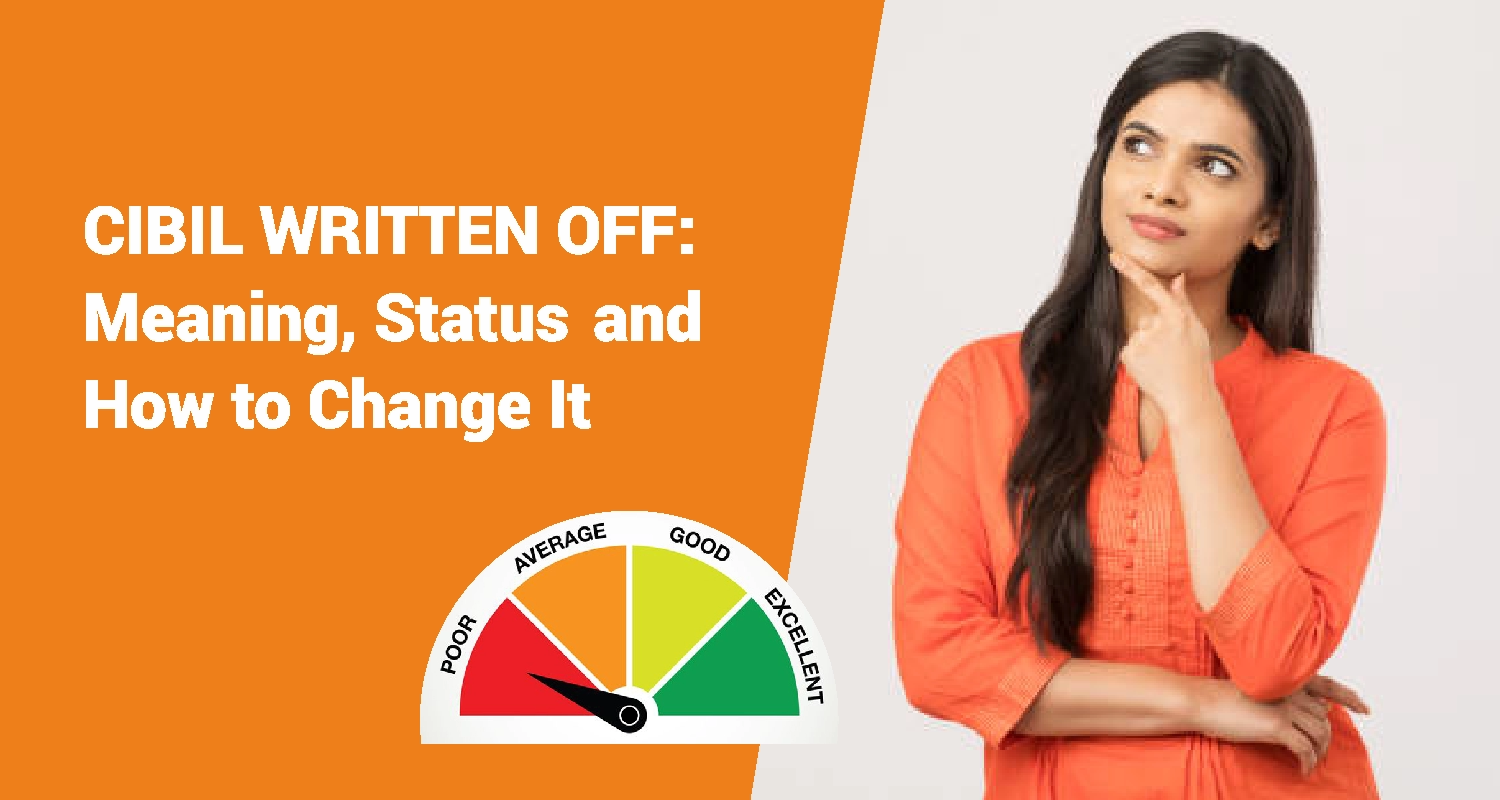What Is The Difference Between Equifax Credit Score and CIBIL Score?

The credit score is crucial for any loan as all lenders use it as the key parameter to determine the likelihood of a borrower repaying money. As a result, with the exception of a few products, such as a gold loan, the credit score plays a critical part practically for all types of debts.
This score is essentially a three-digit number that credit information agencies such as TransUnion CIBIL and Equifax generate after scanning a borrower's existing or previous loans and associated repayment track record.
A high credit score implies that a borrower has been prudent with his or her money, repaying all or most of their debt, including credit card debt, on time and in full, with no or few defaults. Such individuals are good borrowers for a lender.
A poor credit score, on the other hand, indicates that the borrower has either delayed or defaulted on certain loan repayments, signalling to the lender that lending to such a person is a high-risk venture.
Customers can obtain credit reports and credit ratings from credit information bureaus such as Equifax India and CIBIL. These two agencies are among the four credit reporting companies licensed to provide such services in India. The other two are Experian and High Mark.
Such agencies collect and record client credit-related activity. The data is then analysed to develop credit scores and credit reporting summaries for the consumers.
Equifax India is a joint venture between Equifax Inc., USA and seven Indian financial institutions. These are State Bank of India, Bank of Baroda, Bank of India, Kotak Mahindra Prime Limited, Religare Finvest Limited, Sundaram Finance Limited, and Union Bank of India. It was established in India in 2010 and is headquartered in Mumbai.
Credit Information Bureau (India) Limited (CIBIL) was set up in India in 2000. It was later acquired by American credit services company Trans Union International Inc, which currently holds a majority shareholding with small stakes held by other investors. The company, which, is also headquartered in Mumbai, has been renamed as TransUnion CIBIL. However, the credit score is still commonly known as the CIBIL score.
Equifax Vs CIBIL
While Equifax and CIBIL broadly provide similar services, there are some differences between the scores and reports provided by the two agencies.
CIBIL and Equifax both assign borrowers a score between 300 and 900. The metrics used by the two bureaus to calculate a customer's credit health, on the other hand, may differ. This can result in slight differences in credit scores.
CIBIL provides a comprehensive credit report. Equifax, likewise, gives a complete report, but it also includes an easier-to-understand pictorial representation of the credit report.
When compared with Equifax, CIBIL, being the older of the two institutions, has a wider network of clients and partner banks and financial institutions.
While CIBIL was set up in 2000, Equifax was established in 2010. Therefore, if one wants to access information about their credit history prior to 2010, it would be advisable to opt for CIBIL as the credit information agency.
CIBIL is slightly more expensive than Equifax. CIBIL provides credit reports to consumers for a fee of around Rs 550 for each report. An Equifax credit report, on the other hand, costs only Rs 138. Customers can also get a fully customised loan plan from them. This full package costs roughly Rs 400, which is lesser than the services of the CIBIL agency.
CIBIL allows credit and debit card payments as well as internet banking as modes of payment for the services, while customers of Equifax can make payments using demand drafts.
Obtaining an Equifax credit score is a little more difficult than obtaining a CIBIL credit score. To get the CIBIL score, simply log on to their official website and fill out an application form. Five financial questions will be posed to the customer, after which the credit score will be emailed to them.
However, in order to obtain the Equifax report, one must complete a whole KYC form. In addition, they will be required to self-attest their residence and identity verification. Equifax accepts the PAN card, Aadhar card, voter ID card, and passport as identity proof.
Conclusion
Lenders choose borrowers based on their expectations of how the latter will behave when repaying the loan. The CIBIL score or the Equifax credit score becomes a key criterion, with a score above 750 being desirable.
So, if one has a score of 750 or above from either agency, they can easily apply for and obtain a loan from reputed lender such as IIFL Finance. With such a high score, one will be offered the best interest rates available in the market at the time. Furthermore, IIFL Finance will provide value-added services to make the experience as smooth as possible.
IIFL Finance also makes it easy to check the CIBIL score. One just has to fill out a short form on the company’s website, and the credit score will be fetched from CIBIL instantly and for free.
Disclaimer: The information contained in this post is for general information purposes only. IIFL Finance Limited (including its associates and affiliates) ("the Company") assumes no liability or responsibility for any errors or omissions in the contents of this post and under no circumstances shall the Company be liable for any damage, loss, injury or disappointment etc. suffered by any reader. All information in this post is provided "as is", with no guarantee of completeness, accuracy, timeliness or of the results etc. obtained from the use of this information, and without warranty of any kind, express or implied, including, but not limited to warranties of performance, merchantability and fitness for a particular purpose. Given the changing nature of laws, rules and regulations, there may be delays, omissions or inaccuracies in the information contained in this post. The information on this post is provided with the understanding that the Company is not herein engaged in rendering legal, accounting, tax, or other professional advice and services. As such, it should not be used as a substitute for consultation with professional accounting, tax, legal or other competent advisers. This post may contain views and opinions which are those of the authors and do not necessarily reflect the official policy or position of any other agency or organization. This post may also contain links to external websites that are not provided or maintained by or in any way affiliated with the Company and the Company does not guarantee the accuracy, relevance, timeliness, or completeness of any information on these external websites. Any/ all (Gold/ Personal/ Business) loan product specifications and information that maybe stated in this post are subject to change from time to time, readers are advised to reach out to the Company for current specifications of the said (Gold/ Personal/ Business) loan.



